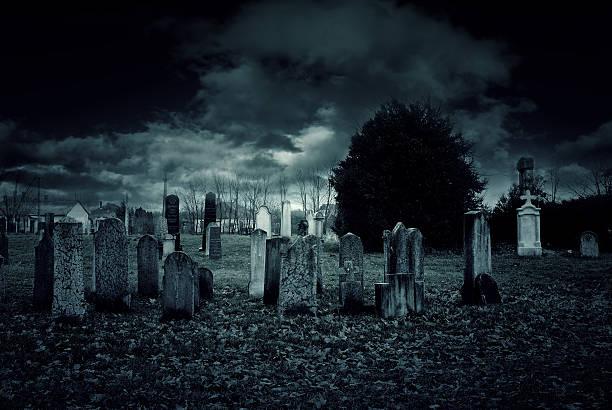News / National
Zimbabwe war heroes' graves in Zambia, Mozambique desecrated
27 Sep 2024 at 07:24hrs |
2 Views

Recent reports have revealed a distressing situation regarding the graveyards of liberation war heroes, particularly those located in Zambia and Mozambique, which have been desecrated as farming activities have encroached upon these sacred sites. The findings were presented by the Parliamentary Portfolio Committee on Defence, Home Affairs, Security Services, and War Veterans’ Affairs, led by Beitbridge East MP Albert Nguluvhe, in response to a petition by war veteran Sam Parerenyatwa.
According to the committee's report, many external shrines in Mozambique and Zambia are in a deplorable condition. Notably, one graveyard in Zambia has reportedly been converted into a farm, with remains of fallen heroes visible and stockpiled at the gravesite. The petitioner underscored the urgent need to repatriate the remains of these veterans back to Zimbabwe.
In light of these distressing revelations, war veterans have called upon Parliament to exercise its authority and advocate for the establishment of a dedicated fund aimed at repatriating and re-burial of ex-combatants buried in mass, shallow, and in some cases unmarked graves in Zambia and Mozambique.
Nguluvhe urged the Ministry of Home Affairs and Cultural Heritage, through the Department of National Museums and Monuments of Zimbabwe, to expedite the exhumation and repatriation processes for the remains of the fallen heroes. "The Ministry of Home Affairs and Cultural Heritage should be allocated adequate funding for exhumations and reburials," he stated.
Furthermore, the report recommends that a dedicated fund for exhumations and reburials be established through an appropriate Act of Parliament, compelling the Treasury to provide necessary funding for these efforts by December 31, 2025.
Many of the fallen fighters were buried in notable sites such as Mkushi, Freedom Camp, Nyadzonia, Tembwe, and Chimoio in Zambia and Mozambique. The committee also highlighted the importance of ensuring that when a veteran is declared a hero, funeral assistance should be provided within three days of notification of death, enabling a dignified burial.
Additionally, the Ministry of Finance, Economic Development, and Investment Promotion has been urged to enhance the capacity of the National Museums and Monuments of Zimbabwe, allowing for the recruitment of sufficient personnel to care for heroes’ shrines, both domestically and abroad.
The report further emphasized the significant challenges faced by the Home Affairs Ministry, particularly the lack of funding, which has hindered the department’s ability to fulfill its mandate. "Over the years, there has been stagnation in development and maintenance programs due to insufficient funding for the Liberation Heritage Programme," it stated.
In a related development, South Africa recently repatriated the remains of 49 liberation fighters who died in exile in Zimbabwe and Zambia, highlighting the ongoing efforts to honor and remember those who sacrificed their lives for the liberation struggle.
The secretary of the Home Affairs Ministry indicated that a policy shift is necessary to address the call for exhuming and reburial of fallen heroes in mass graves abroad. A decision made in the 1990s stipulated that remains be exhumed and interred in central locations within the various camps outside the country.
According to the committee's report, many external shrines in Mozambique and Zambia are in a deplorable condition. Notably, one graveyard in Zambia has reportedly been converted into a farm, with remains of fallen heroes visible and stockpiled at the gravesite. The petitioner underscored the urgent need to repatriate the remains of these veterans back to Zimbabwe.
In light of these distressing revelations, war veterans have called upon Parliament to exercise its authority and advocate for the establishment of a dedicated fund aimed at repatriating and re-burial of ex-combatants buried in mass, shallow, and in some cases unmarked graves in Zambia and Mozambique.
Nguluvhe urged the Ministry of Home Affairs and Cultural Heritage, through the Department of National Museums and Monuments of Zimbabwe, to expedite the exhumation and repatriation processes for the remains of the fallen heroes. "The Ministry of Home Affairs and Cultural Heritage should be allocated adequate funding for exhumations and reburials," he stated.
Furthermore, the report recommends that a dedicated fund for exhumations and reburials be established through an appropriate Act of Parliament, compelling the Treasury to provide necessary funding for these efforts by December 31, 2025.
Additionally, the Ministry of Finance, Economic Development, and Investment Promotion has been urged to enhance the capacity of the National Museums and Monuments of Zimbabwe, allowing for the recruitment of sufficient personnel to care for heroes’ shrines, both domestically and abroad.
The report further emphasized the significant challenges faced by the Home Affairs Ministry, particularly the lack of funding, which has hindered the department’s ability to fulfill its mandate. "Over the years, there has been stagnation in development and maintenance programs due to insufficient funding for the Liberation Heritage Programme," it stated.
In a related development, South Africa recently repatriated the remains of 49 liberation fighters who died in exile in Zimbabwe and Zambia, highlighting the ongoing efforts to honor and remember those who sacrificed their lives for the liberation struggle.
The secretary of the Home Affairs Ministry indicated that a policy shift is necessary to address the call for exhuming and reburial of fallen heroes in mass graves abroad. A decision made in the 1990s stipulated that remains be exhumed and interred in central locations within the various camps outside the country.
Source - newsday
Join the discussion
Loading comments…










































